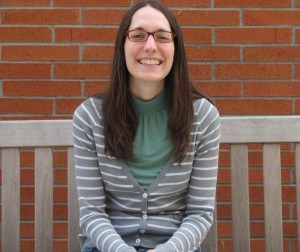Jenny Dimsho received her Bachelor of Science in Community and Regional Planning from Missouri State University. As a student, Jenny interned with the SW Missouri Council of Governments where she helped develop the 2012-2013 Human Service Transportation Plan for the 10-county region. After attaining her Bachelors Degree, Jenny decided to move to Portland, Oregon in order to establish residency for in-state tuition. Jenny plans to use her year with RARE AmeriCorps Program – Resource Assistance for Rural Environments to improve her planning skills through first-hand experience while allowing her to further define her career path. Following her year with the RARE Program, Jenny plans on attending graduate school to further her studies in planning and community development.
Jenny is placed with the City of St. Helens where she will assist in the creation of two important planning documents that will improve the attractiveness and livability of the St. Helens Community. Specifically, Jenny will update the 1996 Parks Master Plan to integrate connectivity of non-motorized access with emphasis on connecting public spaces and access to the Columbia River waterfront. Additionally, the Jenny will assist in developing the The Hwy 30 Corridor Plan; an equally exciting project that will ultimately redefine the appearance and function of the Hwy. 30 corridor through St. Helens.
St. Helens is located in southeastern Columbia County, on the Columbia River, approximately 30 miles northwest of Portland, Oregon. Near the riverfront, the Old Town portion of St. Helens features a Nationally Registered Historic District encompassing 10 blocks, which includes residences and civic buildings dating back nearly a century. Currently, the community is in transition shifting from the historic “mill town” to now determining its future. One defining characteristic is that 70 percent of the workforce commutes outside the County to work. The City’s emphasis has been to preserve the small town character, charm and quality of life.
Organization: City of St. Helens
Community: City of St. Helens
Population: 12,900
County: Columbia


